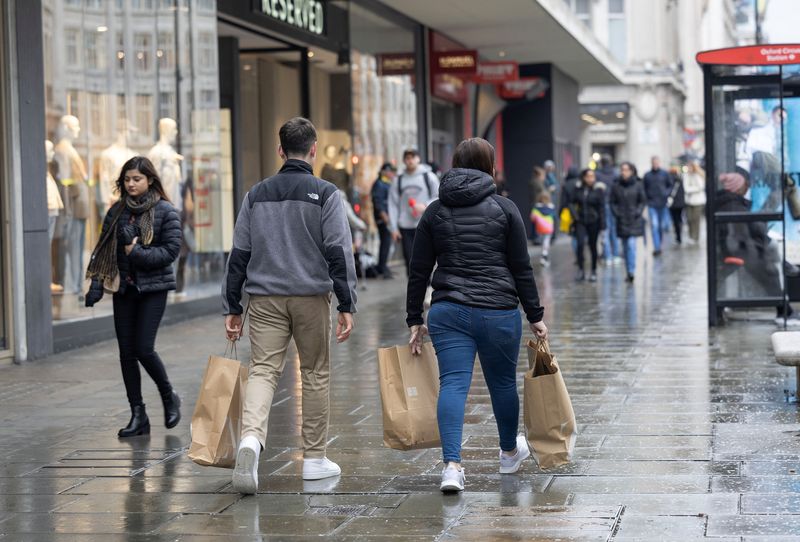By Suban Abdulla
LONDON (Reuters) - British retailers reported sluggish sales in January as shoppers remained cautious about spending, according to a survey published on Tuesday which underscored how high inflation and borrowing costs are weighing on households.
The British Retail Consortium (BRC) said consumer spending increased by 1.2% in January compared with the same month last year, representing a fall in purchases after inflation is taken into account, and below a 1.7% rise in December.
"It may be a new year, but the hangover of low consumer confidence remains," Linda Ellett, UK head of consumer markets, leisure & retail at KPMG said.
Ellett said bad weather conditions last month, including two storms, discouraged shoppers from venturing out to stores.
British consumers have had to contend with high inflation and borrowing costs, potentially pushing the economy into a shallow recession in the second half of 2023.
But the Bank of England last week hinted that rate cuts could be on the horizon as price growth slows - offering a bit of relief to Prime Minister Rishi Sunak ahead of an expected national election this year.
Ellett said uncertainty over supplies after attacks by the Iran-aligned Houthi rebels on ships in and around the Red Sea could put further pressure on retailers in the coming months.
Previously released official data - which covers more stores than the BRC's figures - showed the biggest fall in sales for nearly three years in December.
Individual retailers have reported a mixed Christmas trading period. Britain's biggest supermarket Tesco (LON:TSCO) and clothing retailer Next raised their profit outlooks after strong sales but sportswear firm JD Sports and luxury fashion brand Burberry warned on profit.
Separate figures from Barclays (LON:BARC) showed the strongest rise in online shopping in two years, reflecting how the bad weather kept many consumers at home last month.
Overall, Barclays customers spent 3.1% more on debit and credit cards in January than a year earlier, speeding up from December's 2.3% growth but still below the most recent rate of inflation.

However, the bank said consumers' confidence about their personal finances was the highest since November 2021.
"Increasing consumer confidence is a positive message for the UK outlook in 2024, as we see inflation continue to fall, real incomes rising and growing signs that interest rate cuts are coming," Jack Meaning, chief UK economist at Barclays, said.